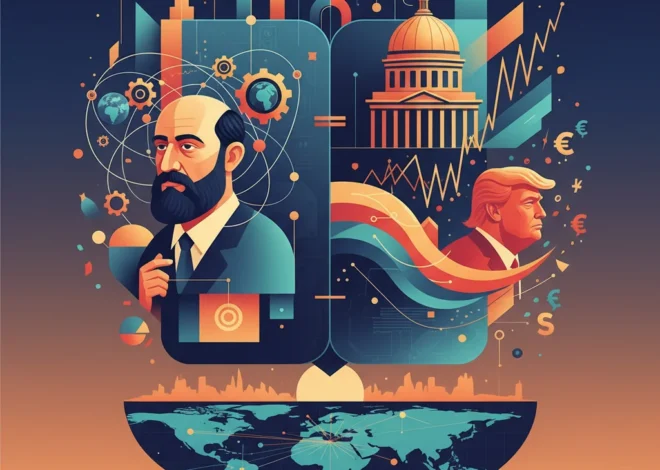
The New Financial Battleground: Why JPMorgan’s ‘Debanking’ Inquiry Matters to Everyone
In the modern economy, a bank account is not a luxury; it’s a lifeline. It’s the gateway to paying bills, receiving a salary, investing for the future, and participating in the digital marketplace. But what happens when that gateway is suddenly closed, not for financial reasons, but potentially for your political beliefs? This is the explosive question at the heart of a recent disclosure by America’s largest bank, JPMorgan Chase.
In a quiet regulatory filing, the financial behemoth revealed it is cooperating with a U.S. government inquiry into its account closure practices. The probe centers on allegations of “debanking”—the termination of banking services for clients, allegedly due to their political affiliations. This development, first reported by the Financial Times, catapults a simmering political debate into the highest echelons of global finance, with profound implications for investors, business leaders, and every single person who relies on the banking system.
This isn’t merely a corporate headache for JPMorgan; it’s a critical stress test for the entire financial industry. The inquiry forces us to confront a fundamental question: Are banks neutral, utility-like platforms for commerce, or are they becoming arbiters of acceptable speech and ideology? The answer will shape the future of banking, the economy, and the intersection of capital and culture.
What is ‘Debanking’ and Why is it a Political Flashpoint?
At its core, “debanking” refers to a financial institution terminating a relationship with a client. While banks have always reserved the right to close accounts, the controversy arises from the *why*. For years, advocacy groups and individuals, particularly on the conservative side of the political spectrum, have claimed they are being systematically denied access to basic financial services because of their views.
The JPMorgan inquiry gives official weight to these long-standing concerns. While the bank’s filing was sparse on details, it confirmed it is responding to inquiries from “certain US states and branches of the US government” regarding its “processes for closing the accounts of customers and politically exposed persons.” This probe signifies that regulators are taking the allegations seriously, moving them from the realm of political commentary to a matter of potential regulatory action.
This issue is not new, but it has gained significant traction. It reflects a broader societal tension where corporate actions, often under the umbrella of risk management or Environmental, Social, and Governance (ESG) initiatives, are viewed as a form of political or social engineering. For those affected, losing a bank account can be catastrophic, effectively cutting them off from the modern economy. It can prevent a business from making payroll, a non-profit from accepting donations, or an individual from managing their daily life.
The Gig is Up: How the UK's New Labour Crackdown Will Reshape Finance, Tech, and the Economy
The Regulatory Tightrope: A Bank’s Duty vs. A Customer’s Rights
To understand the complexity of the situation, it’s crucial to acknowledge the immense regulatory pressure banks operate under. They aren’t just free to do business with whomever they please. A vast and intricate web of laws governs their operations, primarily aimed at preventing financial crime.
Key among these are Anti-Money Laundering (AML) and Know Your Customer (KYC) regulations. Mandated by laws like the Bank Secrecy Act, these rules require financial institutions to diligently monitor transactions, report suspicious activity, and understand the nature of their clients’ business to prevent illicit activities like terrorism financing, money laundering, and fraud. Failure to comply can result in colossal fines, reputational ruin, and even criminal charges for bank executives.
This creates a powerful incentive for banks to be risk-averse. If a client or industry is deemed “high-risk”—even if their activities are perfectly legal—a bank might decide the compliance and monitoring costs outweigh the benefits of their business. This practice became infamous during the Obama-era “Operation Choke Point,” where the Department of Justice was accused of pressuring banks to drop clients in legal but controversial industries like firearms sales and payday lending (source). Critics argue that “debanking” is a modern-day extension of this, where political views are the new “reputational risk.”
To clarify the distinction at the heart of this debate, consider the following comparison:
| Legitimate Risk-Based Account Review | Alleged Politically-Motivated Debanking |
|---|---|
| Reasoning: Based on compliance with AML/KYC laws, sanctions lists, or verifiable evidence of illicit financial activity. | Reasoning: Based on a client’s political statements, affiliations, or participation in legal but politically controversial activities. |
| Triggers: Suspicious transaction patterns, international wires to high-risk jurisdictions, or a client’s presence on a government watchlist. | Triggers: Negative media coverage of a client’s political views, pressure from activist groups, or internal “reputational risk” assessments tied to ideology. |
| Communication: Often vague due to legal restrictions on “tipping off” potential criminals, but rooted in a documented compliance process. | Communication: Typically a generic letter citing “risk” with no specific details, leaving the client to suspect political motives. |
| Goal: To protect the integrity of the financial system and comply with federal law. | Goal: To distance the institution from perceived reputational, social, or political controversy. |
The Ripple Effect: Implications for Investing, Fintech, and the Broader Economy
The fallout from this controversy extends far beyond JPMorgan’s legal department. It has tangible consequences for the entire financial ecosystem.
For Investors and the Stock Market
For those investing in banking stocks like JPMorgan (JPM), this introduces a new and unpredictable layer of risk. Regulatory inquiries can be long, costly, and result in significant fines. More importantly, they create reputational damage that can erode customer trust and, ultimately, shareholder value. The stock market abhors uncertainty, and the prospect of political battles impacting a bank’s core operations is a major one. This will likely become a key discussion point in earnings calls and analyst reports, with a new focus on how banks are navigating the treacherous waters of political risk.
For the Economy and Free Enterprise
A healthy economy relies on the free and open flow of capital. If entrepreneurs and business leaders fear they could be locked out of the banking system for expressing a particular view or operating in a legal but unpopular industry, it could create a chilling effect. This stifles innovation, discourages investment, and concentrates economic power in the hands of those who conform to prevailing orthodoxies. The principles of economics teach us that open access and competition are vital for growth; creating ideological barriers to entry runs counter to this.
Beyond the Eye of the Storm: Analyzing the Economic Aftermath of Hurricane Melissa
A Catalyst for Fintech and Blockchain?
Perhaps the most significant long-term consequence is the powerful tailwind this provides for decentralized financial technology. If traditional banking becomes perceived as unreliable or politicized, it creates a massive market opportunity for alternatives. This is where the world of fintech, and specifically blockchain technology, enters the conversation.
The core promise of decentralized finance (DeFi) and cryptocurrencies like Bitcoin and Ethereum is censorship resistance. Transactions on a public blockchain are processed by a distributed network of computers, not a central intermediary like a bank. This architecture makes it technically very difficult, if not impossible, for any single entity to block a transaction or freeze an account. The “debanking” phenomenon serves as a powerful, real-world use case for this technology, potentially accelerating mainstream interest and adoption. It highlights the demand for a financial system where the rules are encoded in transparent software, not subject to the shifting whims of a corporate risk committee.
The Path Forward: Regulation, Transparency, and the Future of Banking
The JPMorgan inquiry is unlikely to be resolved quickly. It sits at the complex intersection of banking regulation, free speech rights, and corporate responsibility. As government agencies investigate, they will have to balance the legitimate need for banks to manage risk against the fundamental right of individuals and legal businesses to participate in the economy.
Possible outcomes range from new regulations requiring banks to provide more detailed explanations for account closures to stricter oversight of their “reputational risk” frameworks. Regardless of the specific result, the financial industry is on notice. The era of closing accounts with a vague, one-sentence letter may be coming to an end. Demands for transparency and viewpoint neutrality are growing louder and are now being echoed by state and federal authorities.
Bitcoin's 0K Horizon: Decoding the Signals from Wall Street and the Fed
Ultimately, this episode forces a necessary, if uncomfortable, conversation. It challenges the world of finance to define its role in a deeply polarized society. The decisions made by giants like JPMorgan, and the regulatory response that follows, will not only impact their bottom line but will also set a precedent for the relationship between money, power, and ideology for decades to come. For anyone involved in finance, investing, or the broader economy, this is a story to watch with rapt attention.


